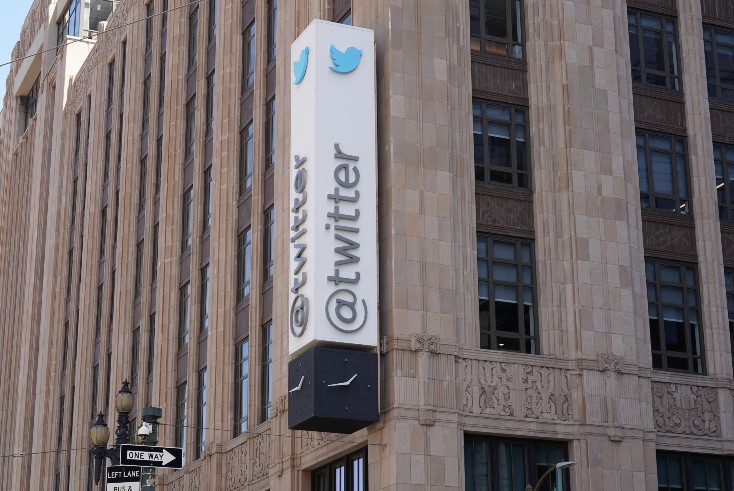Was Twitter good for journalism?

Opinion
Twitter’s impact on journalism has been both a boon for, and a stain on, a transitioning industry.
Twitter is not yet dead. But after months of Elon Musk’s ownership of the company, it’s a very different place than it once was.
Asking “What was Twitter anyway?” in The New York Times Magazine last month, Willy Staley compared it to a once bustling dinner party. “The site feels a little emptier, though certainly not dead. More like the part of the dinner party when only the serious drinkers remain,” he writes.
But even those “serious drinkers,” like the always entertaining Stephen King, don’t appear happy with the chaotic way in which the platform has been run. Practically every journalist, publisher or media professional I have asked about Twitter in recent weeks has lamented the platform has become a dumpster fire; the firehose of disinformation from the dissolution of its verified ‘blue checkmark’ verification policy just the latest in a long string of mismanagement from its chief twit.
While the scale of its userbase never came close to rivalling other social networks like Facebook, Instagram, or more recently TikTok, Twitter always held an outsized cultural influence in part because of its usefulness to journalists and news organisations. But with the likes of NPR leaving the platform and some journalists, including The Media Leader‘s editor Omar Oakes, sidelining their use of Twitter in favour of competitors like Mastodon or Bluesky, Twitter is risking the further dissipation of its core users — the journalists providing the service with what little valuable content it has ever had to offer.
No longer a status symbol
I was never a fan of Twitter. At risk of betraying my relative youth, the platform only became popular when I was in my early teens. “It’s just Facebook if the only thing you can do is write a status message,” I remember saying in high school; back when Facebook was still cool, Snapchat was the hot new platform, YikYak was spreading local toxicity and Vine (eventually ruined by Twitter itself) was the ascendant short-form video start-up, not TikTok.
A news junkie then and now, I never thought whatever conversations were happening in the Twitterverse were important. A celebrity tweeted, then deleted, something offensive… so what? News just broke… I can find it anywhere else online or on TV. Alexandria Ocasio-Cortez went on a diatribe… cool.
In fact, I resisted the (non-existent) urge to create an account until I became serious about pursuing a career in journalism; my anti-Twitter edginess reluctantly replaced by hustle economy pragmatism.
It was then, and still arguably is now, pertinent to one’s personal branding as a journalist to be on the platform. Valid concerns aside over whether the risks associated with operating on the platform (exposure to “serial harassers”, increased perceptions of bias, potential for defamation lawsuits, and of course, the possibility of being cancelled, rightfully or wrongfully) outweigh the benefits, it’s true that on Twitter, journalists can promote their work, liaise with potential contacts, and keep on top of breaking news. Indeed, finally acquiring a blue checkmark was a core goal of all young reporters, a status symbol denoting that you’d made it, that you are an Important Person.
That is, until now. Now, they sell blue checkmarks to anyone dumb enough (or shrewd enough) to purchase one.
‘A crisis of trust’
That doesn’t mean there were not once positives to Twitter during its decade-long reign as the virtual pseudo-town square. Dave Randall, commercial director at Future plc and Future 100 Club member, tells me that, on the whole, Twitter has been good for journalism because it helped grow online readership and engagement levels at a time when publishers were awkwardly transitioning from print behemoths to digital upstarts. But that has changed under Musk.
“Despite becoming a communication channel for Future editorial teams to share their specialist expertise, with Twitter now experiencing a crisis of trust it is possible the audiences we reach could fall away,” he said. “I hope the organisation remains competitive and navigates through this time to support and grow journalism further.”
Former BBC News presenter and The Media Leader columnist Ray Snoddy adds: “In its heyday Twitter was the most remarkable journalistic vehicle the world has ever seen. Able to call on many millions of eye-witnesses around the world, it was the ultimate trip-wire for breaking news and events both tragic, significant and hilarious in ways that orthodox news agencies could barely match. Professional journalists could then follow up, check and analyse before using Twitter as a conduit for their finished efforts.”
It’s true: the platform’s democratising effect on discussion could make reporter or celebrity out of anyone. Many of today’s most prominent journos made their careers on the platform, either through witty, incisive commentary, or by tracking down individuals with interesting stories to tell. Not to forget, as Silicon Valley’s most ardent supporters never allow us to do, it played an outsized role in supporting the Arab Spring.
But Twitter also always had a dark side. It unleashed hordes of people to spread hate, abuse, bigotry, and misinformation. After all, without the platform would Donald Trump have become as popular as he did? Debates over the need for “free speech absolutism” aside, Twitter’s failure to understand and take accountability for the fact that it acts as publisher to any random thought, comment, or article posted on its site has undoubtedly caused irreparable harm to sociocultural discourse.
Twitter has never been representative of anything
It also ushered in an era of declining journalism quality.
How many articles have you read over the years, often with clickbait titles about how “people are up in arms about x” or “everybody is talking about y”, that have in actuality been about what a small number of Twitter users are saying?
Hell, I’ve even been guilty of passing off comments I’ve seen on social media as supposedly representative public feedback. Why? Because it’s easy. It’s also lazy journalism, and it’s everywhere today.
How many journalists have had their speech forcibly altered in order to fit statements within 280 characters? An amount never long enough to fully provide context for a coherent thought, let alone allow for legitimate discourse, debate, or information beyond a basic headline.
Perhaps most damaging: people who spend too much time on Twitter easily forget that the often all-too-toxic discourse that occurs on the platform is not representative of anything. A Twitter poll is not and has never been a substitute for rigorous public opinion surveys. The loudest judgements are typically not the most commonly held; its users make up just a fraction of global society.
While the likes of Snoddy and Randall may have expressed hope that Elon Musk eventually leaves the platform, paving the way for a renaissance of the “information society” developed in part by Twitter, my preference would be for it to be dead and buried.
At best, Twitter has been a mixed bag for journalism. At worst, it has irrevocably changed the enterprise for the worse. If you want news, subscribe to and support publishers you trust, check in often, and do something you likely rarely did on Twitter: read past the headline.
I promise you, Stephen King won’t miss you.
 Jack Benjamin is a reporter for The Media Leader, specialising in publishing and social media.
Jack Benjamin is a reporter for The Media Leader, specialising in publishing and social media.




